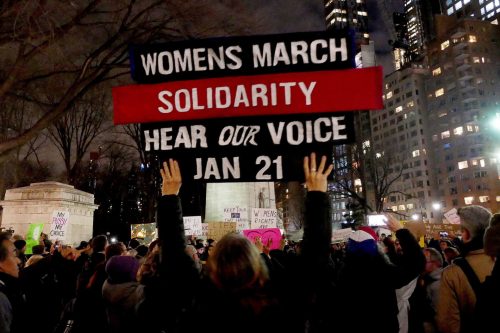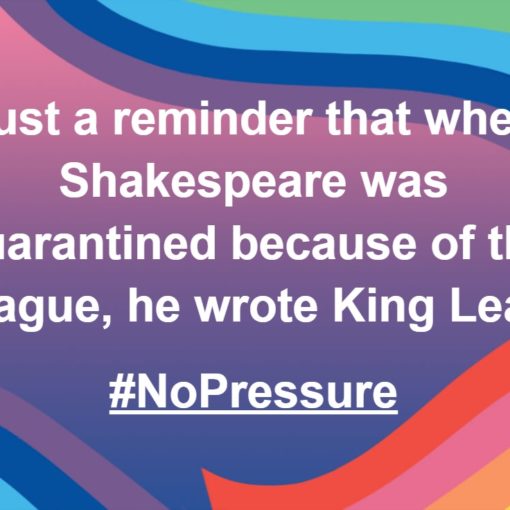
Speaking out can be tough. Any of the women in the recent Larry Nassar court case who shared their stories of abuse and humiliation before a global audience will no doubt attest to that. However, with movements such as #MeToo, Black Lives Matter, and the growing voice of trans men and women, solidarity shown by speaking out has become an increasingly important driver of political activism and personal empowerment.
As we celebrate the centenary of the Representation of the People Act, which brought limited suffrage to women, it is important to consider who has a voice in our society, and how they can be heard. Would the recent outpourings of opprobrium against sexual harassment have gained such momentum without the glamorous sheen of Hollywood? As the pendulum swings and discourses shift, these huge and complex questions will no doubt continue to be debated and negotiated.
Why didn’t you say so?
“Why didn’t she say something before?” has been a recurring mantra from those who fail to recognise both the power dynamics and the pain of speaking out. From women facing domestic abuse to those trying to make their mark in the boardroom, sticking a head above the parapet can have damaging personal or professional implications. However, as with cases such as Harvey Weinstein, whose enablers facilitated his continuing harassment of more women, in some cases – especially with issues such as sexual harassment or bullying in the workplace – silence can be a form of complicity. This is not to add guilt to an already complex mix of emotions for those who choose not to speak, it is simply to emphasise the importance of making one’s voice heard. All too often, small acts of appeasement become the norm, building a sense of resentment, a life of wasted talent, or at worst leading to further cases of abuse.
And the challenge of making one’s voice heard is not restricted to dramatic and harrowing stories of sexual abuse, or international uprisings against the tyranny of the patriarchy. I recently confessed in a discussion in the Coffee With Dan Facebook group that keeping the peace instead of having the courage to speak out might be the single biggest factor in holding back my development. This led to some interesting and enlightening exchanges and demonstrated to me just how much this problem resonates with others. Self-censorship is the ultimate in self-defeating activities, a lose-lose situation which deprives both sides of the opportunity to grow.
Behind every successful man…
At the risk of making a huge generalisation that I know will not be the case for everyone, it seems that women have a tendency to hold their tongue way more than men. Terms such as mansplaining and manterrupting have not sprung up in a vacuum, and there is little doubt in my mind that women show a disproportionate reluctance to contribute to conversations and apply for high level jobs. Indeed, a study by Brigham Young University and Princeton showed that men dominate up to 75% of conversations during conference meetings, and at 7%, the number of companies in the FTSE 100 run by women is still depressingly low. (As of last year, there were more men called David in FTSE 100 CEO positions than there were women.)
It’s also fair to say that women are still woefully under-represented in leadership positions in pretty much every sector. Despite whichever wave in the sea of feminism we have reached by this point in the 21st century, women still feel disproportionately responsible for taking on caring and housekeeping duties (even where there are no dependants), and there is still an underlying assumption that women will subjugate their own needs in the service of a man’s ambition. How many movies have you seen where a woman’s sole role appears to be that of waiting at the end of a telephone line and reacting to the latest drama encountered by a dynamic male protagonist (and let’s not even get onto the Bechdel Test).
Having recently attended an arts conference in New York at which leadership, succession and transition were key topics for discussion – and during which, coincidentally, I learned that Josie Rourke, Kate Pakenham and Jude Kelly would all be stepping down from their roles as some of the most powerful and high profile women in the sector – I was driven to consider once again the position of women in leadership, and where the next generation of leaders will come from to fill that vacuum. Excellent programmes like Artistic Directors of the Future and the Clore Leadership Programme will no doubt do what they can to help redress these imbalances, but the pipeline is long, and the arts is renowned for recycling the same old faces.
Making our voices heard
I know January has passed, but it’s still early in the year. The days of the silent treatment are over, and we need to be more vocal for the sake of our friends, our allies and ourselves. Let’s make it our new year’s resolution not to censor ourselves for the sake of keeping the peace or to protect the egos and feelings of others. Whatever your gender, race or background, your voice and your perspective have value and deserve to be heard. Speak up and speak out for what you feel, what you need and what you believe. And if someone doesn’t like it? Well, then don’t waste any more of your breath.


